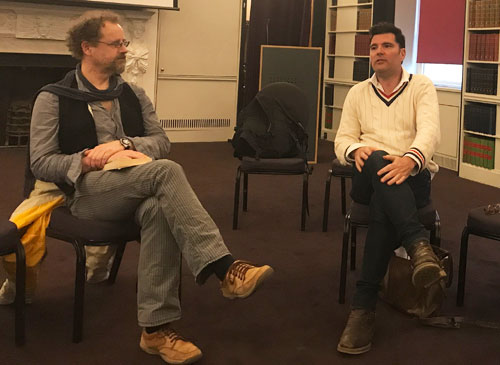As Jenny said, the story now being serialized at LabLit was a multiply authored, collaboratively assembled affair.
It wasn’t totally spontaneous: the exercise sprang from a discussion we’d been having about whether it was possible to write realistic lab lit that was also engaging.
Yes, of course, Jenny was finishing Experimental Heart at the time, but it wasn’t yet published and very few people had even seen a draft. You have to remember that this was 2006 or even earlier, and the lab lit list was still rather pre-Cambrian.
So a bunch of us, convinced that realistic, exciting lab fiction was indeed possible, decided to test the hypothesis. We each picked a major character, and with the merest inkling of a plot put them on the boards to see what they would do and say. It was a bit like D&D but without the dice and board.
The story ran quite briskly for a while, and then with time people began to flag, or find work or other external distractions more pressing. The number of writers—and therefore dwindled to three or four. The story languished for a year or so, and a couple of us tried to get it going again, but then it slipped into what seemed to be its final coma.
Then a few years ago, the exercise never being very far from my mind, I picked it up and breathed some life into it. It was a bit like wrestling soap in the bath—I’d get a handle on the plot and how I saw it going, and then it’d slip away again for a few months, or years. I got a new job, Joshua was born, we moved house again… that sort of thing. It didn’t help that I didn’t really know how to end the story until the last pub scene.
Eventually, last summer, I sat down and wrote the final four or five chapters. This involved doing a bit of ret-conning—going back and fixing some plot points and characterizations that didn’t quite work. Surprisingly little, actually, considering nobody had a clue where we were going when we started, and that any plot guidance had to be given by dropping heavy dialogue hints or sending DMs to individuals on the board.
The writing style varies a little—as I say, each major character had their own author, and at least one of us wasn’t a native English speaker. I’ve tried to smooth some of the bumps out so it hangs together as a single opus, but the first 14 or 15 chapters are pretty much as originally written.
I do hope you enjoy it, and immeasurable thanks to those who started the journey with me so long ago. And if you happen to be reading this, I especially hope you like what I’ve done with it!
Richard




